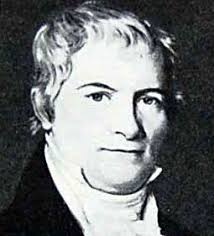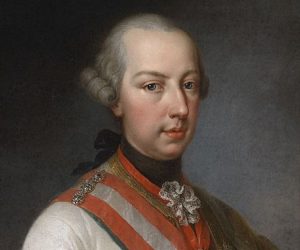On October 29, 1787 – 221 years ago today – Wolfgang Mozart’s opera Don Giovanni received its world premiere in the Bohemian capital of Prague. That premiere was – and remains – Mozart’s single most triumphant first performance.
In 1777, the 21 year-old Mozart wrote his father:
“I have only to hear an opera discussed, I have only to sit in a theater, hear the orchestra tuning their instruments – oh, I am quite beside myself at once.”
The opera house in Mozart’s day was something more than it is today. It was a combination theater; Super Bowl half-time show; Rock concert; carnival mid-way; high-end fashion show; high-tech IMAX-style movie palace; theme park; and a special effects extravaganza: in sum, a total-sensory-immersion facility. In a pre-electronic age, the opera theater was the ultimate virtual reality, where things could happen and be seen and be heard that very simply could not happen, be seen or heard anywhere else. Opera lighting and stage machinery represented cutting-edge technology in the 17th, 18th and 19th centuries, and the production crews at major opera houses in Paris, London, Hamburg, Dresden, Rome, Venice, Naples, Prague, and Vienna were the Industrial Light and Magic, the Pixar of their time.
For Mozart, the opera theater was a place where anything was possible, where almost every aspect of the arts – literature, singing, dancing, acting, instrumental music, costuming, stage design, and technology – combined to create an experience like nothing else on earth.
Despite the fact that he wrote his first complete opera at the age of 12 – in 1768 – Mozart’s operatic career did not get off the ground until 1781, with the production of Idomeneo, and it didn’t go into orbit until 1786, with the production of The Marriage of Figaro.
Let us make no mistake about it: The Marriage of Figaro was new, contemporary, experimental opera. Its dramatic scope, its harmonic language, the complexity and sheer length of its finales were unlike anything that had been heard before. It was respectfully received in Vienna when it opened on May 1, 1786.

The Trip to Prague
In early December of 1786, The Marriage of Figaro was presented in Prague at the still-extant Estates Theater. The reception the Bohemians gave to Mozart and The Marriage of Figaro has become the stuff of legend. Franz Niemetschek, an early biographer of Mozart and resident of Prague, wrote:
“All the connoisseurs and artists of our capital were Mozart’s greatest admirers, the most passionate ambassadors of his fame. Figaro’s tunes echoed through the streets and the parks; even the harpist on the alehouse bench had to play [from Figaro] if he wanted to attract any attention at all. [In Prague], his works were recognized and appreciated at their true value.”
(Niemetschek’s implication being that the Viennese did not properly appreciate Mozart’s music and recognize its true value.)
Figaro’s librettist, Lorenzo Da Ponte, was stunned by the popularity of Mozart’s music in Prague:
“It’s not easy to depict the enthusiasm of the Bohemians for [Figaro]. The numbers which are least admired in other countries are by this people considered divine; and the great beauties of the music were perfectly understood by the Bohemians at the first hearing.”
The Czechs embraced Mozart as one of their own. At the invitation of the city of Prague, he arrived for a visit in January of 1787. There, with his own eyes and ears, he was witness to the “Figaro craze.” Mozart wrote his friend Nikolaus von Jacquin:
“Here, they talk about nothing but Figaro. Nothing is played, sung or whistled but Figaro. No opera is drawing like Figaro. Nothing, nothing but Figaro. Certainly a great honor for me.”
More than just honor, there was a commission. When Mozart left Prague on February 8, 1787, he took with him a contract for a new opera, to be produced at the Estates Theater in the fall of 1787.
Mozart immediately hired Lorenzo Da Ponte to write the libretto for this new opera, and the two quickly agreed upon Don Juan as a subject.
When Mozart, his wife Constanze, and Lorenzo Da Ponte traveled back to Prague in October to oversee the production of Don Giovanni, the opera was still incomplete. Not slightly incomplete, no, really incomplete. With opening night just three weeks away, Mozart had yet to compose big chunks of the opera, including the entire second act finale and the overture. The evidence of Mozart’s last-minute work lies in the music paper on which he wrote much of Don Giovanni, music paper that research has shown to have been purchased in Prague!
Don Giovanni was an even bigger hit in Prague than The Marriage of Figaro. The following review appeared in the Prague Post Newspaper, on November 3, 1787:
“On Monday [October] 29th, the Italian opera company gave the ardently awaited opera by Maestro Mozart, Don Giovanni. Connoisseurs and musicians say that Prague has never yet heard the like. Herr Mozart conducted in person: when he entered the orchestra pit, he was received with three-fold cheers, which again happened when he left it. Everybody, on the stage and in the orchestra, strained every nerve to thank Mozart by rewarding him with a good performance. The unusually large attendance testified to unanimous approbation.”
Most unfortunately, the Viennese reception of Don Giovanni, which was produced there in May of 1788 was, well, no use sugar-coating it, it was bad.
One Viennese critic opined:
“The beauty, greatness and nobility of the music for Don Giovanni will never appeal anywhere to more than a handful of the musical elite. It is not music to everyone’s taste, merely tickling the ear and letting the heart starve.”
Another critic wrote:
“[In Don Giovanni], pedants and pettifoggers may go on measuring, bar by bar, the progressions of notes and the harmonies necessarily resulting there from . . . the music is overly learned and artificial. Whim, caprice, pride, but not the heart created Don Giovanni.”
After hearing Don Giovanni, Emperor Joseph II told Lorenzo Da Ponte that:
“It is not meant for the teeth of my Viennese.”
When Da Ponte told Mozart what the Emperor had said, Mozart quietly replied:
“Give them time to chew on it.”
Amazing. Mozart’s music, music that today we consider the very last word in beauty, clarity, elegance, and accessibility, was considered by so many of his “learned” colleagues and contemporaries to be too long, too complicated, too technical; music that could only appeal to the connoisseur and that was inaccessible to the average listener, “not meant for the teeth of my Viennese.”
Over the years, various Mozart biographers have suggested that had Mozart moved permanently to Prague, he would have enjoyed celebrity, a profitable career and very likely a longer life. Certainly the great Joseph Haydn felt this way. In December of 1787, not long after the premiere of Don Giovanni, he wrote Franz Rott, an influential Bohemian music lover:
“Prague should hold fast to the precious man – but should reward him, too; for without this, the history of great geniuses is sad indeed and gives but little encouragement to posterity for further exertions; and unfortunately, this is why so many promising talents fall by the wayside. It enrages me to think that this incomparable Mozart is not yet engaged by some imperial or royal court.”
But Prague did not find a way, and after writing one more opera for that great city – The Mercy of Titus, Mozart’s last opera, composed in 1791 – he died of kidney failure brought on by a relapse of rheumatic fever on December 5, 1791. He was 35 years, 10 months and 8 days old when he died.
Viva Don Giovanni!
For more on the operas of Mozart, I would humbly direct your attention to my Great Courses survey entitled The Operas of Mozart.
Listen on the Music History Monday Podcast
Podcast: Play in new window
Subscribe: Apple Podcasts | Spotify | Pandora | iHeartRadio | RSS | More




